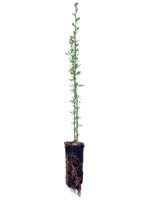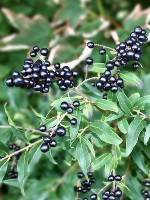Mon-Fri 9am - 5pm Mountain time
Pygmy Caragana vs Wild Privet
Caragana pygmaea
Ligustrum vulgare
CUSTOM GROW
NOT AVAILABLE THIS SEASON - MIGHT RETURN
Pygmy Caragana is a shrub that is related to Common Caragana and has a compact size that is suitable for yards with limited space. Its size is perfect for landscaping and decorative hedges, and requires little maintenance. This nitrogen fixer has fine-textured foliage and small yellow flowers. Much like Common Caragana, it is hardy and drought tolerant.
Popular as a low maintenance commercial landscaping shrub and for hedging. This species does have tiny spines that might poke you a bit. It has a nice appealing texture when mature.
Wild Privet is a fast growing ornamental shrub that is well suited for forming hedges and privacy screens. It will retain its leaves in warmer climates but drops them in colder areas. They have small white flowers, though the smell is often considered unpleasant. While the berries are inedible, they are a good food source for many bird species.
It is recommended to prune Wild Privet immediately after flowering, as it can readily self seed. It is deer and rabbit tolerant. It can grow in dry areas, on slopes, and withstand the wind making it well suited for many growing conditions.
Pygmy Caragana Quick Facts
Wild Privet Quick Facts
Toxicity: If ingested, all parts of this plant will cause severe discomfort. Toxic to dogs, cats, and horses

